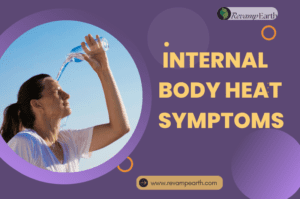The Surprising Benefits of Mindful Eating for Overall Health

In an era marked by the pursuit of wellness and self-improvement, the quest for happiness stands at the forefront of human endeavors. Beyond its ephemeral nature, happiness is increasingly recognized as a critical component of overall health and well-being. Through the lens of science, we explore the profound impact of cultivating joy on various facets of our lives.
The Physiology of Happiness
Research into the science of happiness delves into the intricate workings of the human brain and body. Studies have revealed that experiencing joy triggers the release of neurotransmitters such as dopamine, serotonin, and endorphins, which contribute to feelings of pleasure and contentment. These biochemical reactions not only elevate mood but also exert tangible effects on physical health, including strengthened immune function, reduced inflammation, and even enhanced cardiovascular health.
Let’s explore a bit deeper into the role of neurotransmitters and their effects on our bodies:
Dopamine: Often referred to as the “feel-good” neurotransmitter, dopamine is associated with reward and pleasure. When we experience something enjoyable or satisfying, such as achieving a goal or engaging in pleasurable activities, dopamine is released in the brain’s reward pathway. This release of dopamine reinforces behaviors that are perceived as rewarding, leading to a sense of pleasure and motivation.
Serotonin: Serotonin is known as the “happiness neurotransmitter” and is involved in regulating mood, social behavior, appetite, digestion, sleep, memory, and sexual desire. Imbalances in serotonin levels are associated with mood disorders such as depression and anxiety. When serotonin levels are optimal, it contributes to feelings of well-being, contentment, and emotional stability.
Endorphins: Endorphins are natural painkillers produced by the body in response to stress and pain. They are often referred to as the body’s natural opioids because they bind to the same receptors as opioid drugs. Endorphins are released during activities such as exercise, laughter, and even spicy food consumption. Their release induces feelings of euphoria and can act as a natural stress reliever.
The release of these neurotransmitters not only affects our mood but also has tangible effects on our physical health:
Strengthened immune function: Research suggests that positive emotions and happiness can boost the immune system, making individuals less susceptible to infections and illnesses. This is partly due to the reduction in stress hormones such as cortisol, which can suppress immune function.
Reduced inflammation: Chronic stress and negative emotions are associated with increased inflammation in the body, which is linked to various chronic diseases such as cardiovascular disease, diabetes, and autoimmune disorders. Happiness and positive emotions have been found to lower levels of inflammatory markers in the body, thus reducing the risk of inflammation-related diseases.
Enhanced cardiovascular health: Happiness has been linked to improved cardiovascular health, including lower blood pressure, reduced risk of heart disease, and better overall heart health. Positive emotions are thought to promote relaxation, improve blood flow, and reduce the risk of blood clot formation, all of which contribute to a healthier heart.
Overall, understanding the physiological mechanisms underlying happiness highlights the importance of cultivating positive emotions and well-being not only for our mental health but also for our physical health and longevity. Practices such as mindfulness, gratitude, social connections, and engaging in activities that bring joy and fulfillment can all contribute to a happier and healthier life.
Psychological Resilience and Emotional Well-Being
Cultivating happiness is not merely about fleeting moments of euphoria; it involves fostering psychological resilience to navigate life’s inevitable challenges. Individuals adept at finding joy amidst adversity exhibit higher levels of emotional well-being and are better equipped to cope with stressors. Practices such as mindfulness meditation, gratitude journaling, and fostering strong social connections have been shown to bolster resilience and promote a more positive outlook on life.
Here’s a breakdown of some key points related to resilience and emotional well-being:
Definition of Psychological Resilience: Psychological resilience refers to the ability to bounce back from adversity, trauma, or stress. It involves adapting well in the face of adversity, trauma, tragedy, threats, or significant sources of stress.
Importance of Psychological Resilience: Resilience is important because it helps individuals:
Better cope with stress and adversity.
Maintain a positive outlook despite setbacks.
Improve mental health and emotional well-being.
Foster stronger relationships and social connections.
Achieve personal growth and development.
Relationship Between Resilience and Emotional Well-Being: Resilience and emotional well-being are closely intertwined. Individuals with higher levels of resilience tend to experience greater emotional well-being because they can effectively cope with stressors and maintain a positive mindset.
Practices to Cultivate Resilience and Emotional Well-Being:
Mindfulness Meditation: Mindfulness meditation helps individuals develop awareness of the present moment without judgment. It can reduce stress, enhance self-awareness, and promote emotional regulation.
Gratitude Journaling: Keeping a gratitude journal involves regularly writing down things one is thankful for. This practice can increase positive emotions, improve resilience, and enhance overall well-being.
Social Connections: Building and maintaining strong social connections is crucial for resilience and emotional well-being. Supportive relationships provide comfort, encouragement, and practical assistance during challenging times.
Self-Care Practices: Engaging in self-care activities such as exercise, adequate sleep, healthy eating, and leisure activities can bolster resilience and improve emotional well-being.
Seeking Professional Support: In some cases, seeking support from a therapist or counselor can be beneficial for building resilience and addressing emotional challenges.
By incorporating these practices into their lives, individuals can enhance their resilience and emotional well-being, enabling them to navigate life’s ups and downs with greater ease and positivity.
The Ripple Effect of Positive Emotions
Happiness is contagious, with its effects rippling outward to influence the well-being of those around us. Research suggests that individuals surrounded by happier peers are more likely to experience greater levels of happiness themselves. Moreover, acts of kindness and altruism not only bring joy to others but also contribute to a heightened sense of fulfillment and purpose within oneself, fostering a positive feedback loop of well-being within communities.
Here are some key points that highlight this phenomenon:
Emotional Contagion: Humans are highly susceptible to “catching” the emotions of those around them. When we interact with happy individuals, we are more likely to experience positive emotions ourselves. This can be observed in social situations, workplaces, and even online interactions.
Social Networks: Research has shown that happiness spreads through social networks. One study found that having a friend who is happy increases an individual’s likelihood of being happy by 15%. This effect can extend to friends of friends, creating a ripple effect throughout the social network.
Acts of Kindness: Engaging in acts of kindness and altruism not only benefits the recipients but also boosts the well-being of the giver. Helping others releases feel-good hormones like oxytocin and dopamine, leading to a sense of fulfillment and satisfaction.
Positive Feedback Loop: When individuals within a community experience happiness and engage in acts of kindness, it creates a positive feedback loop. As people feel happier and more fulfilled, they are more likely to spread positivity to others, perpetuating the cycle of well-being.
Health Benefits: Beyond the psychological benefits, experiencing positive emotions has been linked to better physical health. Studies have shown that happier individuals tend to have stronger immune systems, lower levels of stress hormones, and reduced risk of chronic diseases.
Productivity and Creativity: Positive emotions have been shown to enhance cognitive function, leading to increased productivity and creativity. When individuals are happier, they are more likely to approach tasks with enthusiasm and creativity, leading to better outcomes.
Community Well-Being: The ripple effect of positive emotions extends beyond individual happiness to contribute to the overall well-being of communities. When a community is characterized by positivity and kindness, residents are more likely to feel connected, supported, and satisfied with their lives.
Understanding the ripple effect of positive emotions underscores the importance of cultivating happiness and kindness in our interactions with others. By spreading positivity, we not only enhance our own well-being but also contribute to the happiness and flourishing of those around us, creating a more vibrant and resilient society.
Longevity and Quality of Life
The pursuit of happiness isn’t merely a philosophical endeavor; it has tangible implications for longevity and overall quality of life. Numerous longitudinal studies have underscored the correlation between subjective well-being and increased lifespan, with happier individuals exhibiting lower rates of mortality from various causes. Moreover, the presence of positive emotions has been linked to a reduced risk of chronic diseases and age-related cognitive decline, highlighting the profound impact of happiness on long-term health outcomes.
Cultivating Joy in Everyday Life
Amidst the complexities of modern existence, cultivating happiness may seem elusive, yet it remains within reach through deliberate practice and mindset shifts. Embracing a mindset of gratitude, savoring life’s simple pleasures, and nurturing meaningful relationships are all foundational pillars of a happier existence. Moreover, integrating activities that bring joy and fulfillment into daily routines can foster a sustained sense of well-being over time.
Conclusion
The science of happiness offers profound insights into the interconnectedness of mind, body, and spirit, highlighting the pivotal role of joy in fostering overall health and well-being. By understanding the physiological and psychological underpinnings of happiness, individuals can embark on a journey towards greater fulfillment and vitality, enriching not only their own lives but also those of others in their midst. In cultivating joy, we unlock the potential for a healthier, happier, and more harmonious world.














